Food is highly essential in sustaining both economic and personal health. Hence, the quality of food has to be measured and ensured to be good. Food quality testing is crucial to control and monitor the different quality parameters throughout the supply chain. This is necessary in order to meet the demands of consumers and extend the shelf life of food.
Fruits, for example, have to be tested for texture quality. Texture is generally perceived first using the sense of touch and then the sense of taste. Consumers tend to want crisp, crunchy, and juicy fruits. Those fruits that meet the texture standards become more marketable. They are preferred by more customers.

The Importance of Fruit Firmness
One of the most sensible textural properties that determine the quality of fruits is firmness. Fresh fruits are actually firmer than stored, damaged, and residual fruits. Their freshness and juiciness play a crucial role in being chosen by customers.
In addition, firmness is related to the freshness and juiciness of fruits, such as apples. The firmness of this fruit is a much more vital indicator than its acid and sugar content. After all, it is related to its ripeness.
The firmness of fruits can be a good indicator of nano-mechanical properties that occur during the ripening process. What’s more, it is among the parameters used to calculate the Streif index, which is used to identify the proper time for harvesting the fruit.
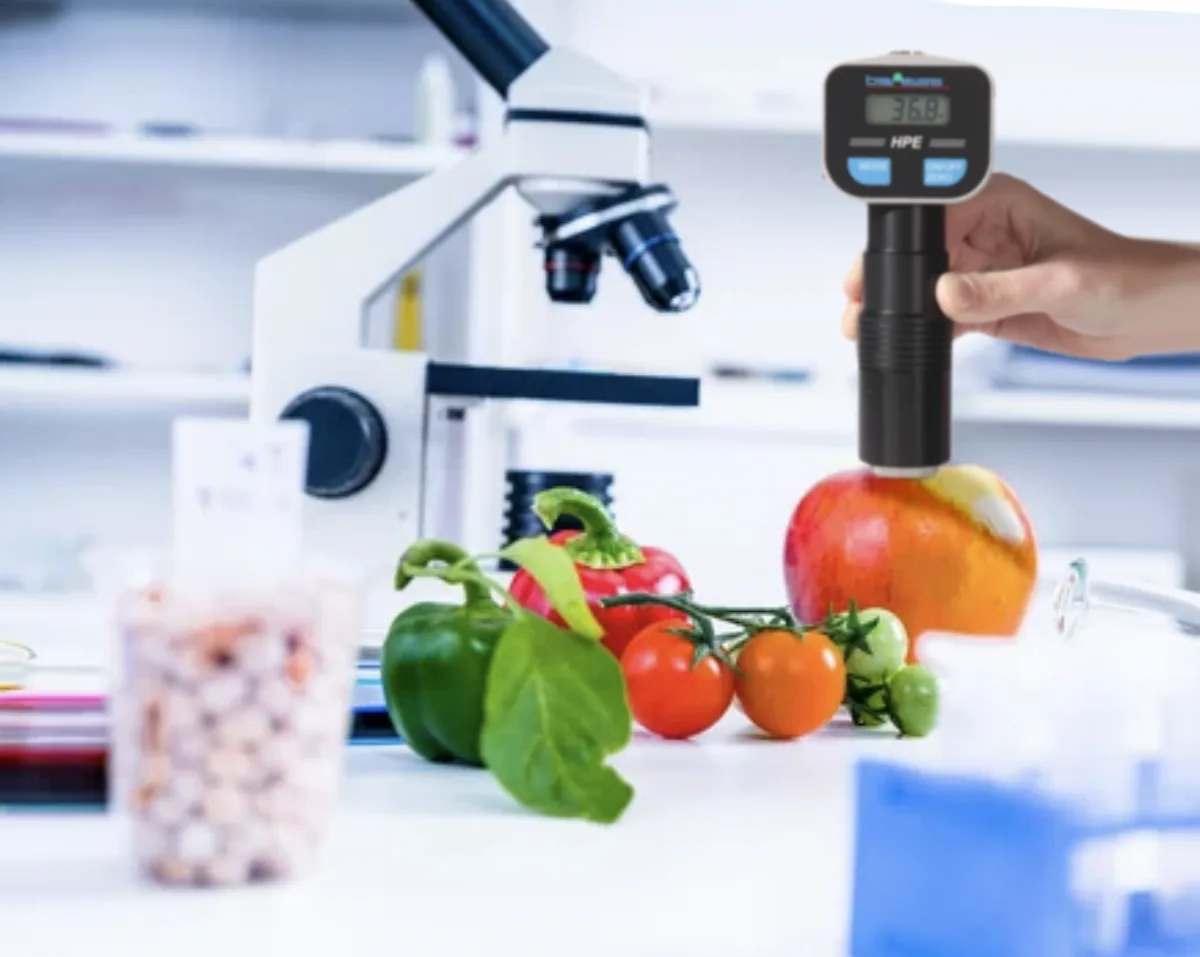
Fruits generally have properties that are measurable by certain techniques, which in turn may be used in grading chains. Such techniques consist of non-destructive acoustic impact response, vibration measurements, micro-deformation, near-infrared spectroscopy, imaging analysis and time-resolved spectroscopy, and ultrasonic wave propagation.
Fruits consist of most of the world’s food waste. If the population is expected to increase throughout the years, then more food waste from fruits is also expected. With this being said, it is important to find ways that can help reduce food waste. Agricultural products should be assessed to reduce waste and losses effectively.
For instance, a penetrometer can be used to measure the hardness or firmness of fruits. This tool is ideal for identifying the perfect time for fruit harvest. It is also ideal for testing the progress of fruits to maturity. Fruit firmness is actually among the most used parameters for testing maturity, along with using refractometers to measure sugar content.
Wholesale fruits, for example, can be harvested when they present a firm texture that would allow them to be handled with ease. Their firmness will also reduce their chances of bruising.
Fruits that are supposed to be stored longer than three months, for instance, have to be harvested with a firmness of 15 lbs. or more. Fruits that are harvested to be sold in farmers’ markets, on the other hand, have to have a firmness of 13 lbs. to 15 lbs.
Essentially, the firmness level required really depends on where the fruit is going to be stored, taken, or used.
How to Measure Fruit Firmness
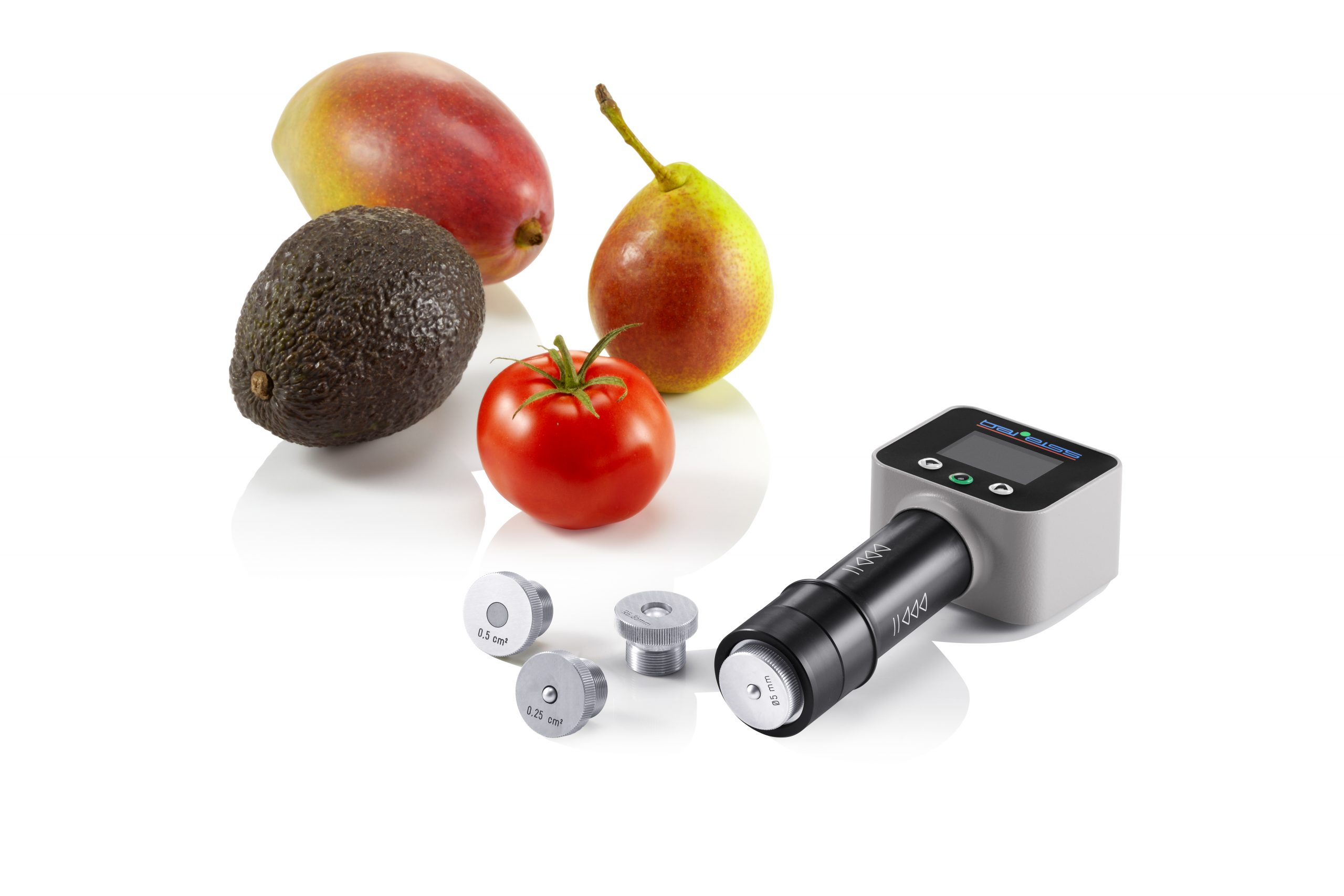
In order to measure the texture of fruits accurately, tests have to be performed either instrumentally or with the use of human subjects via sensory evaluation.
A fruit firmness tester or fruit hardness tester can be used to measure texture. As mentioned earlier, a fruit penetrometer is typically used to measure fruit firmness. This tool measures the force that is required to puncture the flesh of the fruit until there is irreversible damage.
There are different brands available on the market, such as Magness-Taylor and Effegi. These tools use different sizes of plungers for peaches and apples. In order to use them properly, you have to remove a small part of the skin of the fruit. Ideally, you should get a quarter of skin patch.
Then, you have to hold your fruit against any hard surface before forcing the plunger into its skin. You have to do the same procedure on the other side of the fruit. Make sure to compress your plunger at a constant speed to obtain accurate readings.
Another fruit texture analyzser you can use is an HPE III Fff. It is a testing device that allows users to determine the firmness of the fruit pulp. This quality is actually very important for many trading companies. After all, the harvest date of fruits is usually determined by the measurement of firmness.
Fruits have to be firm enough to withstand temperature, travel time, and other external factors while being transported to their place of destination. They also have to be firm enough throughout the duration of their storage.
In general, firmness tests are done on fruits and vegetables such as apples, peaches, plums, apricots, cherries, strawberries, avocados, carrots, tomatoes, radishes, cucumbers, and kohlrabi among others. A portable instrument is great for using indoors and outdoors.
Aside from using tools, humans can also be taught and trained to measure the texture of fruits. They have to be trained on the various textual attributes that are used to describe the products. They can be taught sensory techniques to determine the firmness of fruits.
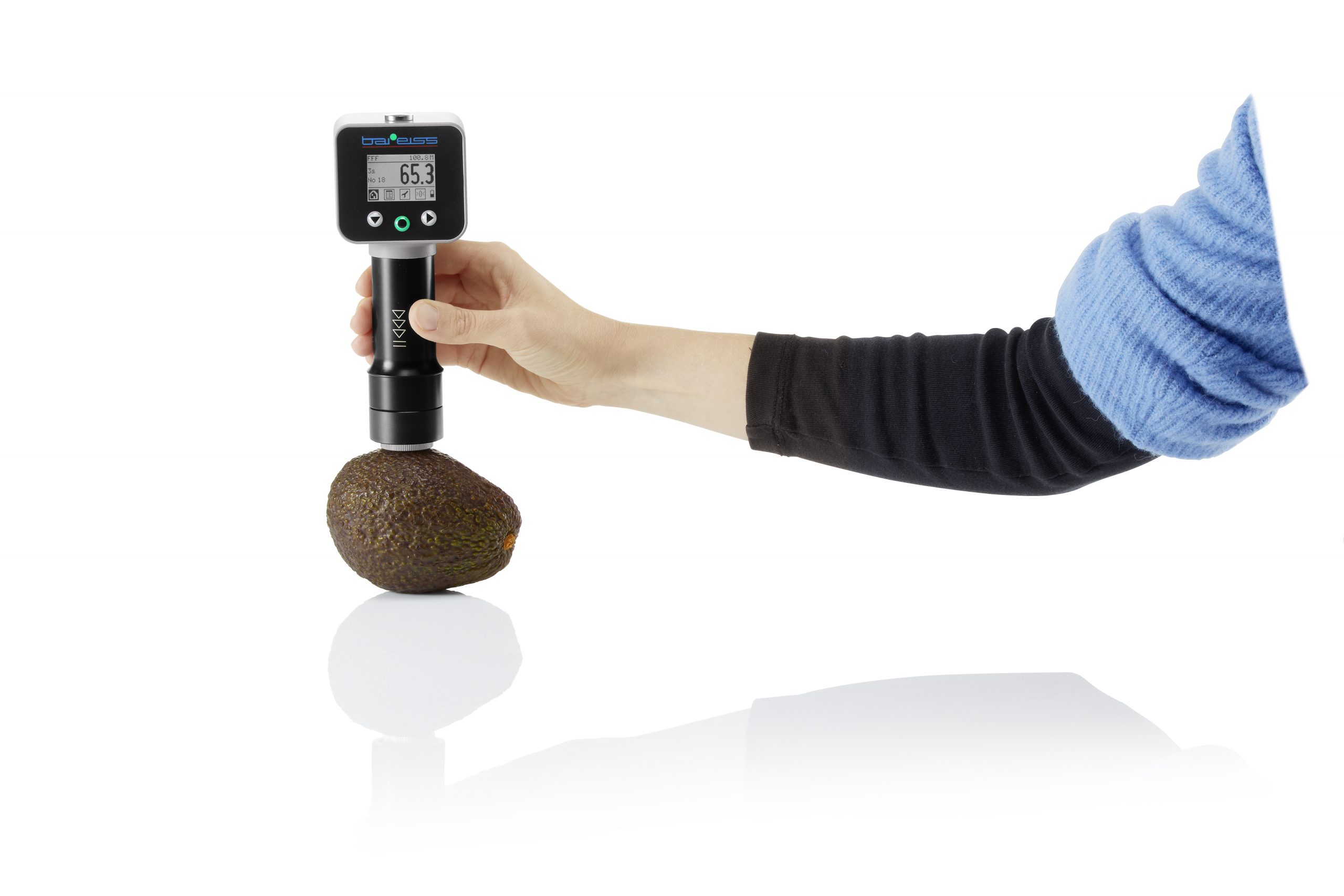
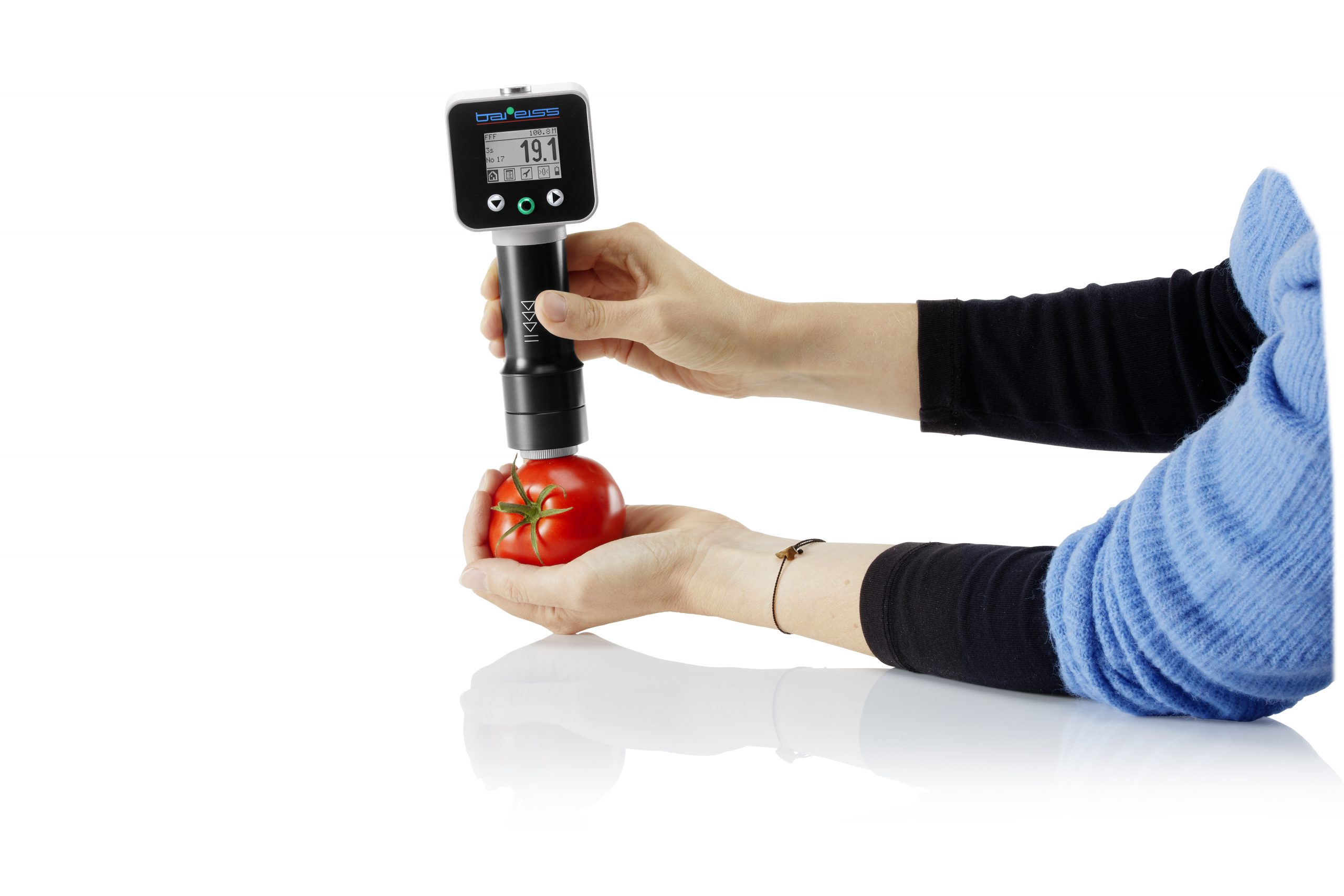
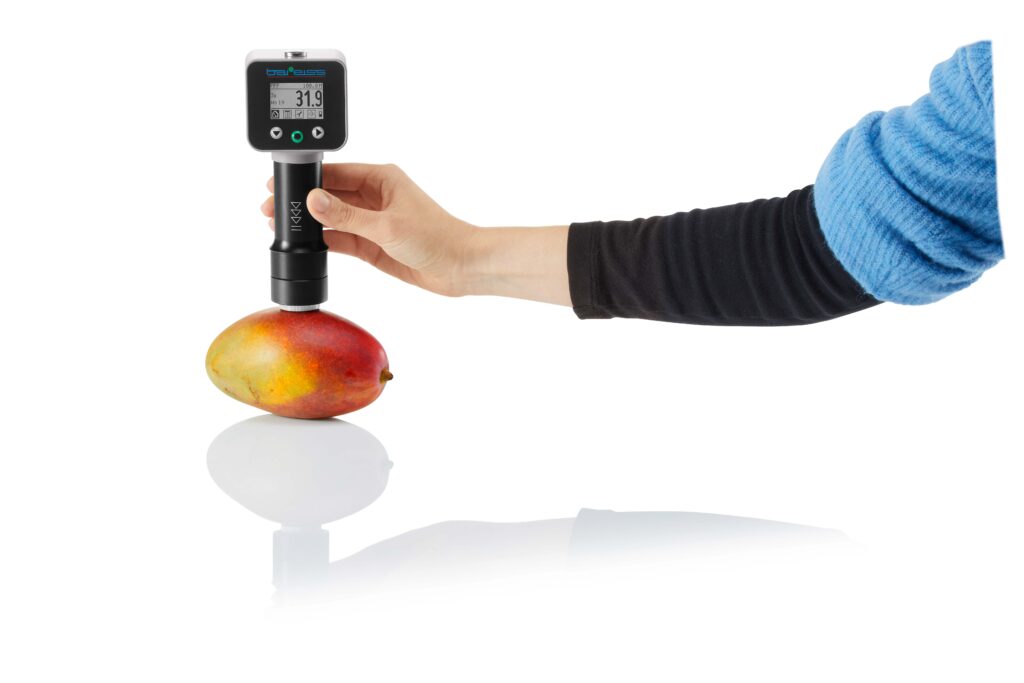
Different Factors that Affect the Texture of Fruits
There are many different factors that affect the texture, especially the firmness, of fruits. The following are some of them:
1. Genetic Background
Every fruit is different and has unique characteristics that set it apart from the others. Peaches, for example, are classified into three types: stony hard, melting, and non-melting.
Stony hard type peaches do not soften easily, just as their name implies. They also tend to have a crisp texture. Melting type peaches tend to soften quickly. They become softer as they become riper. They are typically grown to be consumed fresh. Non-melting type peaches are able to retain their firmness. They soften slowly. Hence, they are ideal to be used for canning.
Apples also tend to vary in texture. Fuji apples, for instance, are soft and crispy. Honeycrips apples, on the other hand, are crispy, juicy, and crunchy.
2. Pre-harvest Factors
Pruning and thinning can affect the texture of fruits by impacting their sun exposure and size.
According to experts, thinning has been found to improve the texture of fruits at the time of their harvest. A study on Royal Gala apples has shown that the firmness of fruits was correlated positively with size. This means that bigger fruits were a bit firmer during harvest than smaller fruits.
In addition, pruning has been found to be vital for fruit texture. By using proper pruning practices, fruits can benefit from optimized light distribution. On the other hand, improper pruning practices can result in fruit shading, which can further lead to underripe fruits that are smaller and with harder, undesirable textures.

3. Nutritional Management
Fruits have to be taken care of properly so that they can provide all the nutrients they have. In turn, they will turn out to be fresh, firm, and nutritious.
In order for you to maintain the optimum texture characteristics of fruits, you have to make sure that your fruits avoid any nutrient imbalances.
Fruits from trees, for example, should receive adequate supply of nitrogen. Otherwise, they will be smaller and firmer. Those that receive too much nitrogen, however, will lose their firmness quickly. Hence, they will also lose their storability potential.
Calcium is a crucial nutrient for good fruit texture. Insufficient calcium amounts can result in premature softening. So, you have to supplement your fruits with calcium sprays in order to get maximum storage potential and high quality fruit texture.
Potassium is another crucial nutrient for fruits. Those that do not get enough of it can suffer from texture changes. They can also grow to be small, poorly colored, and unripe. They can become inedible and hard.
Furthermore, you have to make sure that your fruits get enough boron supply. Otherwise, they can have a mealy texture.

4. Irrigation Management
Crops that experience drought caused by lack of rain or irrigation management can produce fruits that have low turgor pressure. They will be prematurely soft. On the other hand, crops that receive too much water either from rain or irrigation can crack due to the bursting of their cells.
5. Environmental Factors
The quality of fruits can also be affected by light. So, you need to make sure that your fruits receive adequate and uniform amounts of sunlight. This is especially important for fruits on trees.
Temperature also plays a crucial role. Apple and peach orchards, for example, tend to experience very hot temperatures during the spring season. As a result, they have increased fruit growth rates in early development.
Those trees that are not able to keep up with such rate tend to produce smaller and firmer fruits that do not soften. Likewise, crops that experience very hot temperatures during the fall and summer seasons tend to advance in maturity. They become prematurely soft after harvest.
Humidity and rainfall should also be considered. Mid-Atlantic places, for instance, tend to experience rain while trees grow and ripen. This causes these trees to receive more water than necessary. Hence, their fruits crack or split.
On the contrary, trees that do not receive enough water tend to produce fruits that lack firmness. This occurs because their cells undergo physical and chemical changes.

6. Pre-Harvest Fruit Management
Fruits become softer when their production of ethylene increase. As a result, they tend to drop sooner from the trees and become more susceptible to bruises, disease exposure, and injuries. They also decrease their storability.
If you want to control the ripening of your fruits, you can use pre-harvest plant growth regulators. These products can also affect the textural characteristics of your fruits.
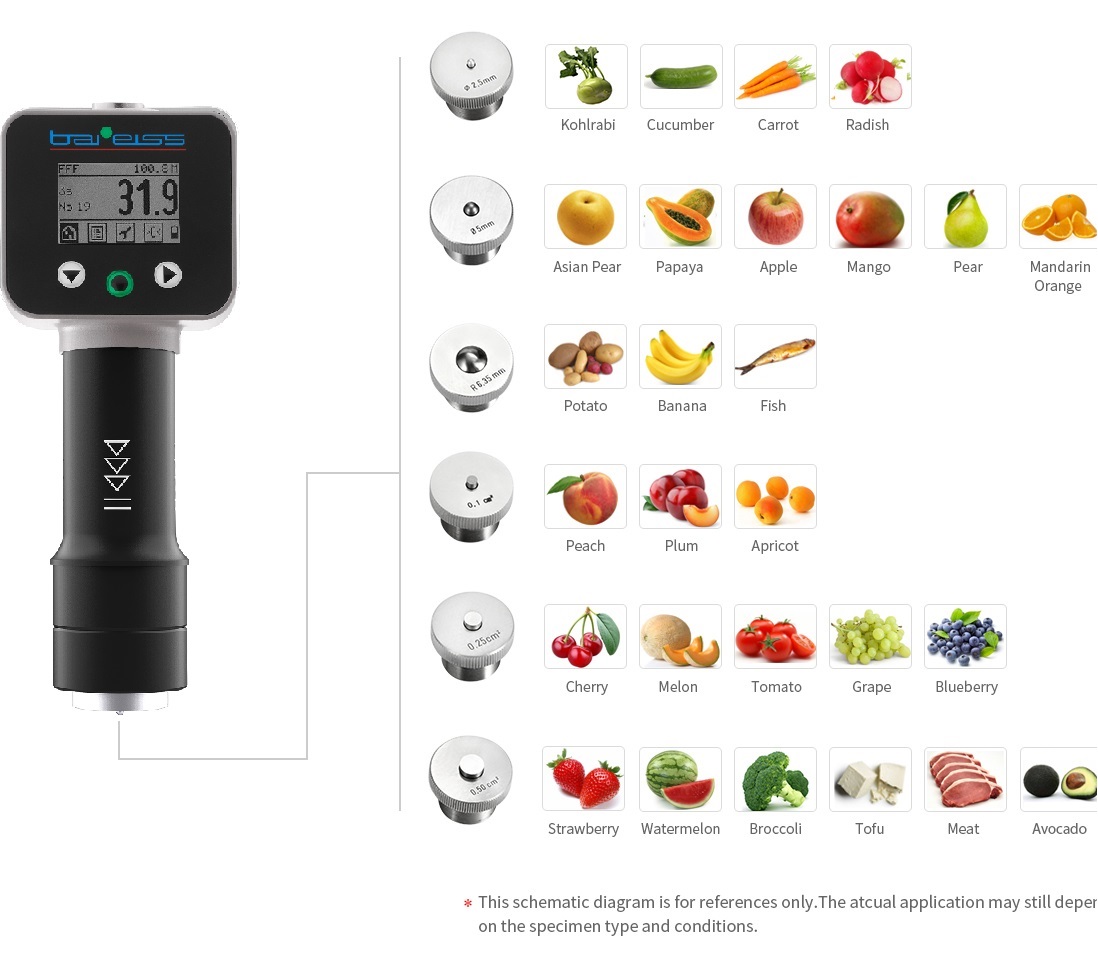
Why You Need a Fruit Firmness Tester
By this time, you should already have a good understanding of fruit firmness and its importance. You should already know why fruits tend to vary in firmness and other textural characteristics.
You may also be wondering if you should get a fruit firmness tester. Well, getting one is highly recommended. If you are still not convinced, perhaps these reasons will convince you:
1. You can use it to know when it is time to harvest your fruits.
Having a good fruit texture analyzer will let you determine the best time for harvesting your fruits. This device, being the ideal replacement for fruit penetrometer, offers a one of a kind non-destructive testing solution for your fruits. Hence, you will be able to save thousands of dollars in your inventory.
You can use your device on apples, pears, oranges, mangoes, papayas, tangerines, peaches, melons, bananas, plums, apricots, grapes, blueberries, cherries, strawberries, and watermelons, among other fruits. However, you can also use it on fish, tofu, and meats.
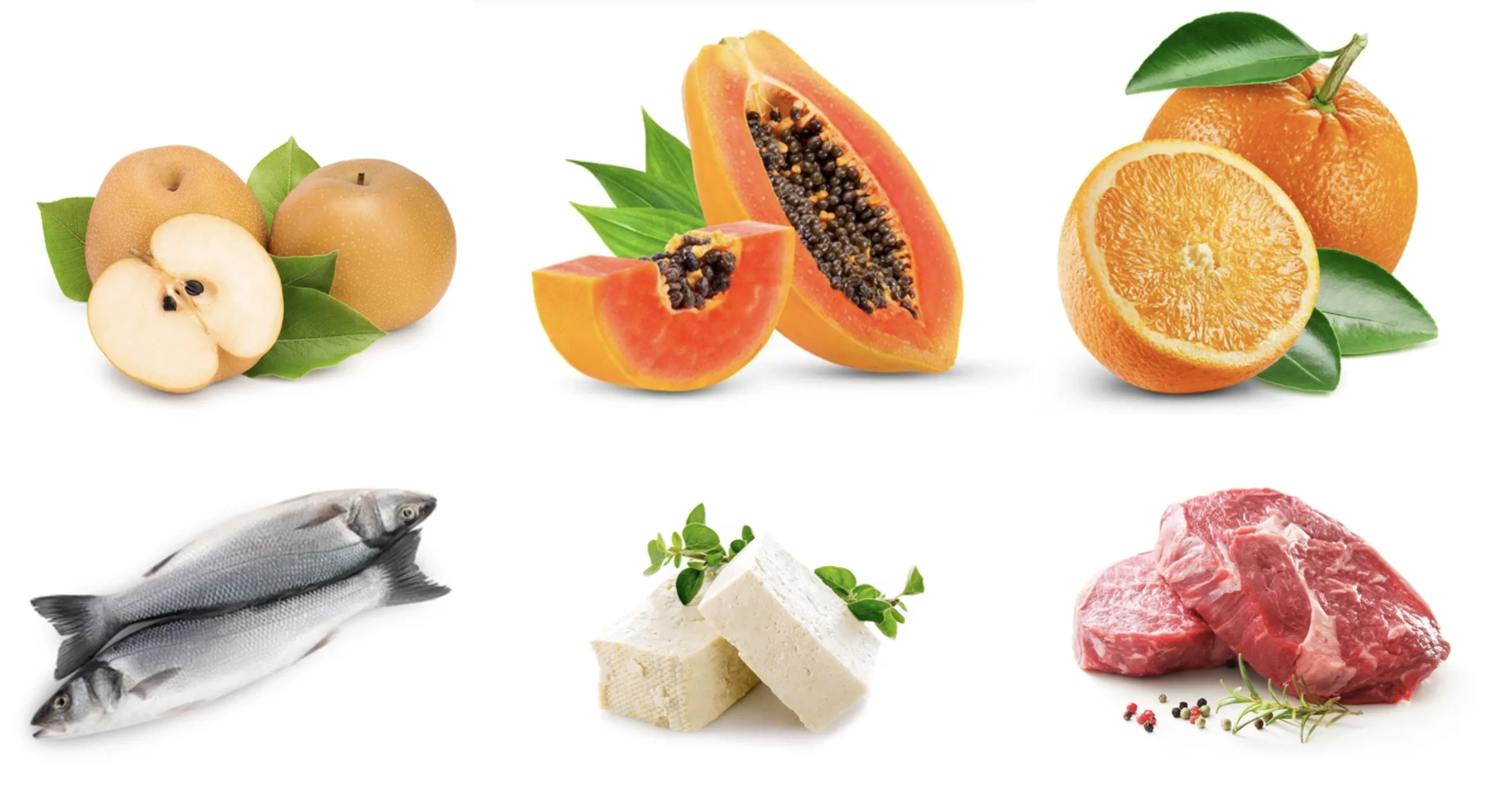
2. You can enjoy numerous benefits.
Having the right fruit firmness tester will let you obtain vital quality control data that is designed for price setting and quality control. This is actually beneficial to both the end user and the seller.
Such system is known for its ability to use the portable device for both outdoor and indoor work conditions. This tester provides non-destructive testing for preserving inventory. It is highly accurate and reproducible.
The interchangeable test anvils are ideal for basically any type of fruit, vegetable, as well as fish and meats. See to it that you get the leading instrument in the food industry as well as calibration certification.

3. Your device will not affect the quality of your fruits.
Performing a firmness test on your fruits is easy. You simply have to use your device to measure both sides of the fruit. You have to apply a constant pressure over a specific period of time. This way, the system can indicate the hardness value of your fruit.
Your device will produce a non-destructive test result. You will find out how firm your fruit is without worrying that the device will negatively affect the fruit. The tester will not penetrate the peel. So, you can rest assured that its quality will stay the same.
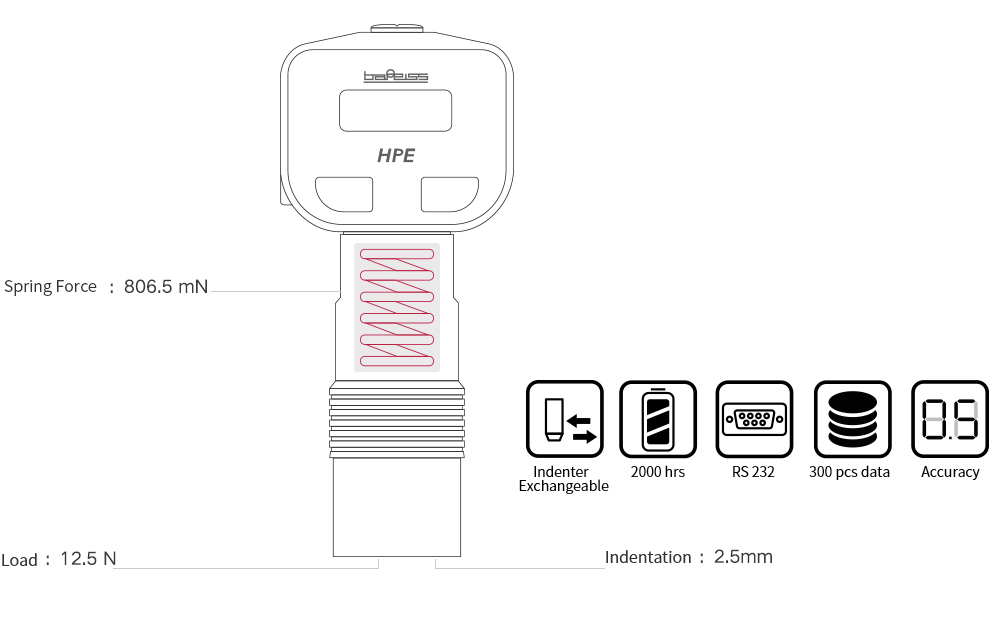
4. You will not have a hard time using it.
This device is pretty much straightforward. So, regardless of your tech expertise, you will surely not have a hard time using it. It is simple and easy to use.
Standard configurations include the main unit, charger, foam-fitted case, and designated test anvil. If you wish to have more anvils, you can purchase them separately.
You can be sure that the device is high quality since it is manufactured in Germany. It has a portable and ergonomic design, so you can carry it with you anywhere you go. You can use it multiple times without experiencing pain.
The anvils are also interchangeable. So, you can use the right ones for vegetables, fruits, fish, and meats. Even though the system is the optimal solution to replace a vegetable penetrometer, it only comes with the standard one anvil, you can purchase additional ones later.

5. You can enjoy long-term benefits.
A quality fruit firmness tester is a non-destructive system that offers accurate test results while preserving inventory.
A high quality fruit firmness tester is a wise investment. You can count on it to last for a long time. You can depend on it to give you accurate results. You can confidently harvest your fruits throughout the year.
Whether you are using your device for personal or business use, you will soon learn that it is one of the best investments you can ever have. After all, food quality is very important.
When you harvest fruits at the right time, you can ensure that you and your family are getting the best quality. Likewise, if you are selling fruits and produce, you can earn more profits when you impress your customers with high quality products. It is truly a win-win for everyone.
Final Thoughts

Indeed, devices such as fruit firmness testers are highly beneficial to everyone, including sellers and end users. These devices help growers determine the best time to harvest their fruits so that consumers can purchase and consume the fruits in their best state.
If you are still wondering whether or not you should get a fruit firmness tester, you should think about what you have just read in this article. Getting this device gives you positive results. So, you may want to stop contemplating and just get one for yourself.
Then again, do not just get any device. See to it that you consider the brand and manufacturer. Only purchase products from trusted and reliable companies such as NextGen.
NextGen is a registered distributor for Bareiss, capable of supplying the Fruit Firmness Tester, the ideal replacement for fruit penetrometer, and other German-manufactured equipment.